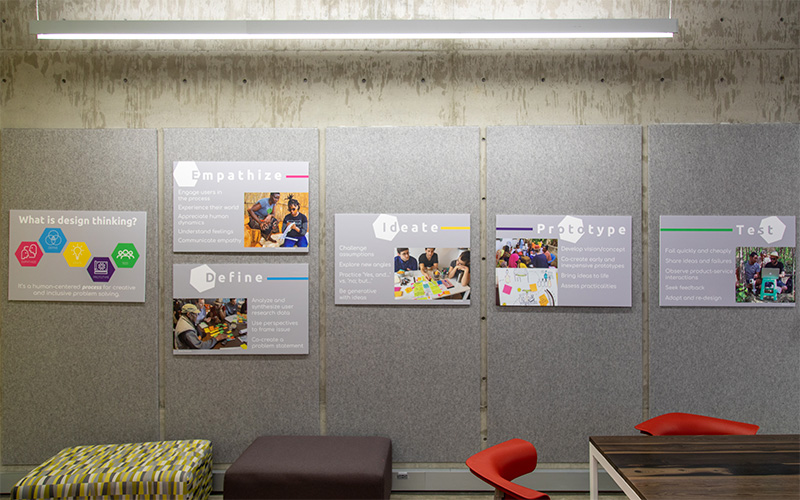
New Minor in Innovation and Design
Students will gain critical problem-solving skills by learning about the principles of design thinking.
UW Tacoma students can now minor in Innovation and Design. The minor represents the next step in a process to bring design thinking to campus. The Global Innovation and Design Lab opened in early 2019 and has served as a home for a variety of class and community-based projects.
Design thinking prioritizes the human experience through an iterative process of ideation, prototyping and testing. "Design thinking helps people think about problem solving in new ways,” said UW Tacoma Associate Professor Emma Rose. “It requires trying to understand the problems that people and communities face by engaging them in ways to brainstorm and try out new ideas.”
The new minor is open to all majors, and students do not need to have a design background. Courses in the minor will draw on methods and theoretical perspectives from the human sciences and design disciplines. "At its heart, design thinking is interdisciplinary because it recognizes that people with different backgrounds, lived experiences, and expertise have unique contributions to make,” said Rose. “When people work together and bring their unique expertise, we can more fully understand and approach complex problems."
The project-based curriculum is meant to foster collaboration and provide students with hands-on experience. Students will learn theoretical concepts and use them to help solve problems out in the local community. “Our community projects open up to a high level of student participation, whether as trained facilitators or as designers themselves,” said UW Tacoma Professor Divya McMillin, who is also UW Tacoma’s associate vice chancellor for innovation and global engagement.
Students involved with the Global Innovation and Design Lab have worked on projects with organizations such as the United Way of Pierce County and South Sound Together. “In October 2020 about 25 of our students participated virtually in the South Sound Together Next Leaders Initiative,” said McMillin. “They prototyped pathways to civic engagement and leadership with students from Tacoma Community College, Bates Technical College and Pacific Lutheran University.”
This hands-on approach is meant to help students better understand theories and concepts. It is also a way to help them compete in the working world. “The minor culminates in a course where students create a portfolio where they reflexively connect their experience in design to the projects they have competed and the courses they have taken in their major,” said Rose. “The portfolio will help them showcase their skills for future employers.”



